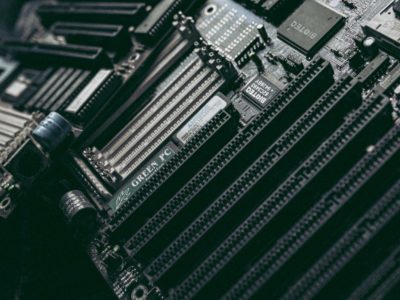„Alexa, please remind me about my meeting at 5 p.m.“ „Siri, please call Dr. Becker.“ „Cortana, please read the draft contract to me!“ „Bixby, get me a cold beer, please!“ Admittedly, not all wishes are yet fulfilled by these little helpers running on artificial intelligence (AI) – but their possibilities are growing with increasing speed, just like their spread in both, the private and professional environment. This is despite the fact that currently dominant applications, such as „smart“ calendar reminders or reading a text out loud, do not even scratch the surface of the possibilities AI offers. If developed and used correctly, AI has the potential to evolve from only being a little helper in your private life to being a professional colleague helping you to improve the way you work and generate ideas you would not have had the time or information to develop on your own. This is why it is imperative that artificial intelligences be implemented by companies if they take digitization seriously.
Alexa, Siri, Cortana and their various siblings in SmartHomes or cars are well integrated into our private lives. Initially, we smiled at the many variations of „I’m sorry, I did not understand you“ or the senseless results we were confronted with. Nowadays, however, we are amazed at how naturally our questions, requests and demands are understood and executed. Alexa and her sisters were attentive and learned with every one of our requests. Every task entrusted to them, every conversation they listened to and every alternative formulation we chose helped the artificial intelligences working in the background to grasp content, meaning and contextual dependencies with increasing precision. The AI learned to draw conclusions from a context and translate them into results appropriate to the situation.
Speaking is a learning process – even an AI needs practice
This machine learning and processing of language in its respective context, called Natural Language Processing (NLP), is a supreme discipline in the expanding fields in which we can apply artificial intelligence.
NLP analyses and interprets both content and structure of language and texts. Algorithms break down texts into sentences and words. It determines the relationship between individual words and identifies the meaning resulting from the interaction of the individual elements of the given sentence. The system does not only recognize a text’s general subject matter and extracts relevant information, but also captures implicit meanings of text structures or elements, i.e. the semantic level. In short: An NLP-AI works towards understanding language almost like people do.
Consequently, wherever language plays an important or even dominant role, NLP faces both, a challenge and a medium helping it to excel. The challenge is to acquire the vocabulary and the semantic concepts relevant in the respective area of life. In order to do this, AI – just like any human being – in any new environment will have to start again from scratch, even if basic linguistic knowledge is already available. The more important language is and the more extensively it is used, the better is the learning environment for an AI. The more input the algorithms receive, the faster they improve.
Towards Deep Legal Tech via NLP
Law and the application of law are therefore predestined for NLP and the training of AI. After all, language and the understanding of language (interpretation) lie at the core of the legal system. While initially, the focus will be less on spoken language and more on text recognition, the result is the same: analytical text recognition using NLP has the potential to take digitization of legal processes to a whole new level.
Natural Language Processing is not limited to classifying texts and sorting them into categories such as contracts, judgements or legal recommendations. This form of AI can do much more than perform automated tasks in the form of contract generators, electronic files or static text analysis based on keywords, currently referred to as „legal tech“.
With the help of NLP, it is possible to extract information and correlations from various sources, bundle those information and evaluate them in this newly created context. An AI can be trained, for example, to check documents and correspondence – both formal correspondence and in internal chats – in a company with regard to certain legal issues. NLP thus lays the foundation for digital legal applications (Deep Legal Tech) that provide real added value for companies. The better such a system works, the more efficiently it can support the company, take over administrative and preparatory work and allow employees to focus on tasks that require their core competences.
Opportunity faces resistance
Sounds great, doesn’t it? So why is it that there is no real Deep Legal Tech solution yet? Well, we know the answer: Habits and vested interests. Deep Legal Tech requires companies to rethink and actively participate. An AI is only as good as the data it can learn from. Companies that are willing to open their data sources enable AI to understand the company; to understand how the company thinks, speaks, what it wants to express or what it asks. AI can thus evolve to become an organic part of the enterprise and provide answers and information that are really needed. At first, we will again smile at many variations of „I am sorry, I did not understand you“. Soon, however, companies will marvel at the results achieved with AI.
Opening up requires the courage to be transparent. The courage to face uncomfortable truths, but also the courage to allow your new AI colleagues to undergo a learning process, in other words, to endure inconsistent workflows for some time.
Companies that are serious about digitization will need to be courageous and integrate AI into their business processes. Deep Legal Tech is particularly well suited as a starting point as legal processes are closely linked to other business processes. Deep Legal Tech therefore offers particular potential for successful implementation and a noticeable reduction in the workload for employees. The short-term additional effort is quickly leveraged once the AI unfolds its potential, relieves employees and discovers information that might otherwise not even have been considered.
The future belongs to the brave – and their AI.
You agree with all of this and are ready for digitization but lack a concrete product to get you started? Well, we sure have an idea…

